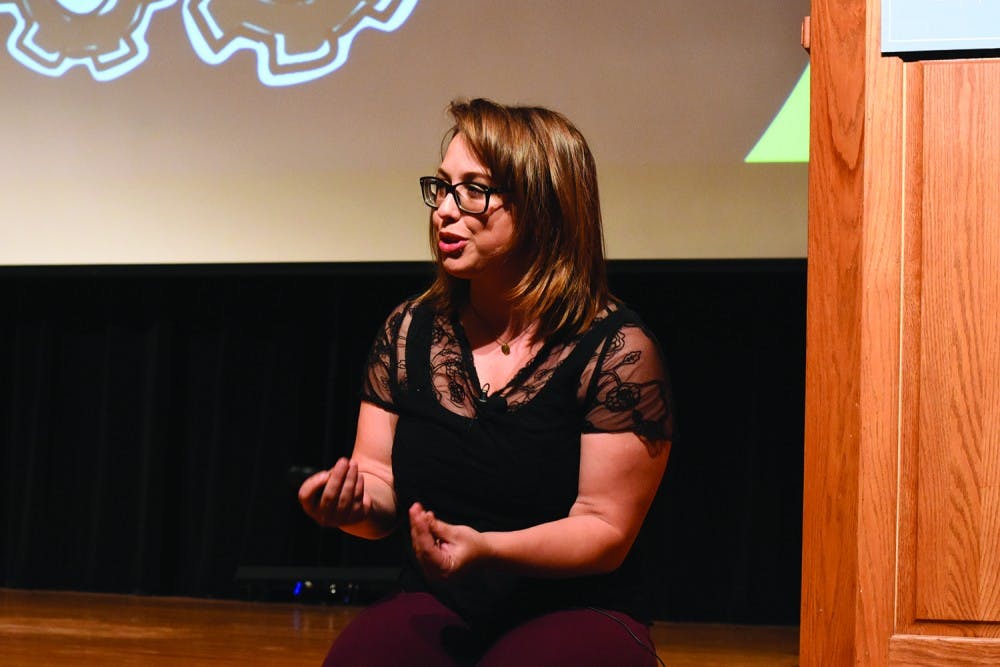Jean Kilbourne, internationally acclaimed media critic, author and filmmaker, spoke at UNC’s Gender-Based Violence Symposium Tuesday on the relationship between objectified images of women in advertising and gender-based violence.
Kilbourne highlighted the theme of this year’s Sexual Assault Awareness Month in her presentation — addressing gender-based violence through challenging social norms.
“We all grow up in a culture in which women’s bodies are turned into things, into objects,” she said. “And this is everywhere — advertising, social media, pornography, TV.”
Kilbourne said sexual and gender-based violence have become more than something that only affects a few. She said it is now a public health problem that affects everyone, and can only be solved by changing the environment.
L.B. Klein, a graduate student at UNC who worked to plan the event, said the symposium and Kilbourne’s speech are both aimed at emphasizing the month’s theme of amplifying new voices and shifting social norms to lead to prevention.
Nicole Castro, a graduate student at UNC who presented a short talk at the symposium on her research in the role communication plays in sexual violence, said this change will start in the way we talk about sexual assault.
“I think it’s so important to start re-conceptualizing sexual violence and where it is,” Castro said. “We still have these myths that say it’s pervasive and happens over there to someone else.”
Kilbourne stressed that the current toxic environment created by the media and advertisements is the core cause for rampant sexual violence against women.
She showed examples of advertisements depicting sexualized and objectified women and contrasted them with our culture’s lack of similar images of men.



